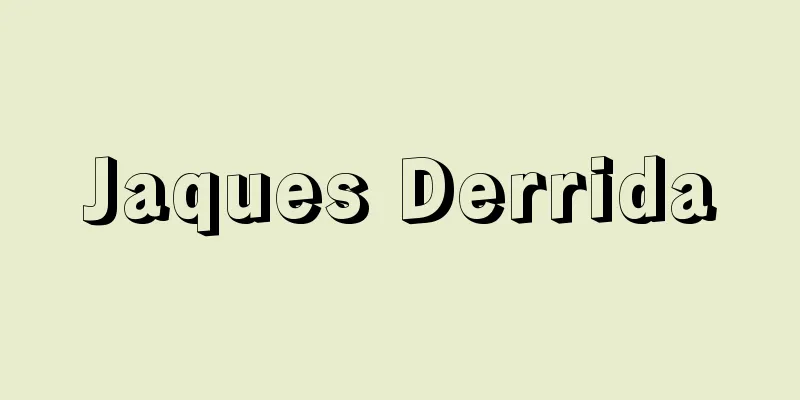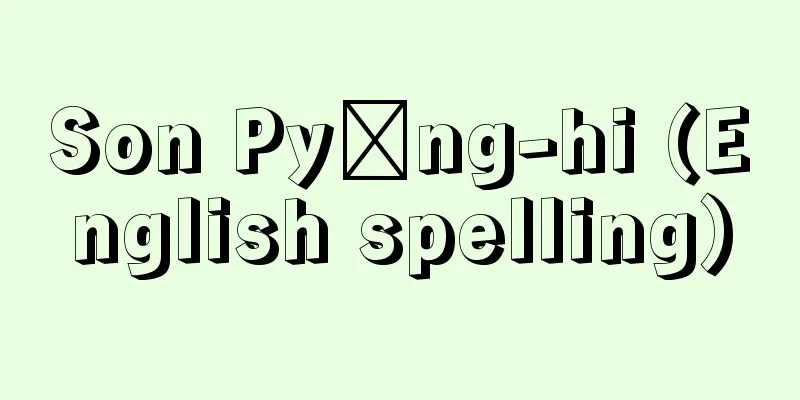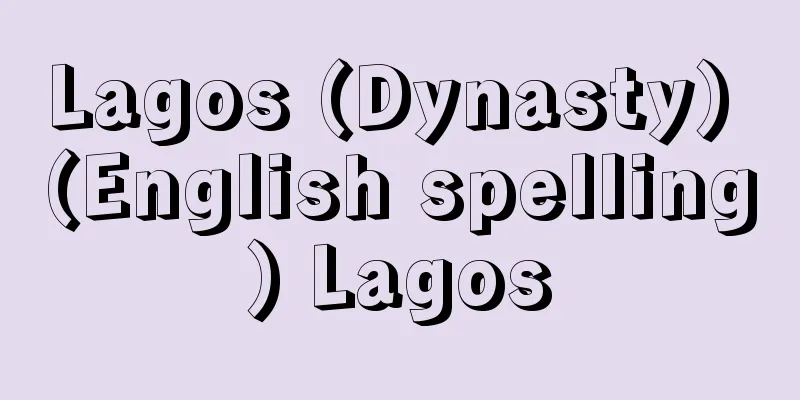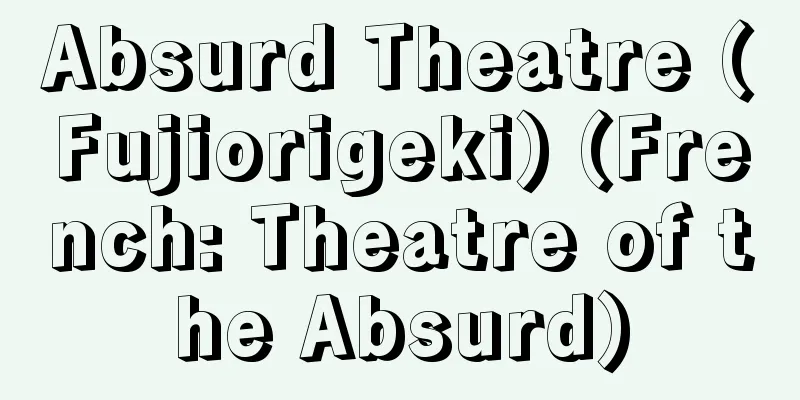Jaques Derrida

|
A contemporary French philosopher who represents poststructuralism. Born in 1930 to Jewish parents in El Biar, near Algiers, the capital of Algeria, which was then a French colony. He was educated in a Frenchified society, separated from the cultural and linguistic societies of the surrounding Arabs and Berbers, and grew up speaking French as his first language. The catalyst that drove him to Paris was Albert Camus, who also came from Algeria to Paris. His identity is derived from his triple specificity as a "French, Maghreb, and Jew." In 1956, he graduated from the École Normale Supérieure (Higher Normal School) in Paris and began his research life at Harvard University. In 1957, he married Czech-born Marguerite Aucouturier (1932- ) in Boston. He then served in the military in Algeria for two years. In 1959, he returned to France and taught philosophy at the Lycée Montesquieu in Le Mans, the Sorbonne (University of Paris) in 1960, and the Ecole Normale Supérieure in 1964. After teaching at the Ecole Normale Supérieure for 20 years, he moved to the School of Advanced Studies in the Social Sciences. During this time, he gave lectures and speeches at universities throughout the United States, strengthening his intellectual influence after the May 1968 revolution. In 1974, he formed the philosophy education group "Greph" (Groupe de recherches sur l'enseignement philosophique) to counter the suppression of philosophy education in France, and in 1979 he held the public debate "Three Parties on Philosophy" (1,200 participants) at the Sorbonne. In 1983, he became the first chairman of the International College of Philosophy, which was established in line with the policy of expanding philosophy education under the Mitterrand administration. In the 1980s, his political activism drew attention, and he founded the Jan Hus Society to defend Czech dissident intellectuals, becoming its vice-chairman. However, in 1981, he was arrested and detained at Prague airport for "illegal drug trafficking." He was a strong opponent of apartheid in South Africa, and supported and assisted Nelson Mandela. As a key member of the International Congress of Writers, which was founded in 1993, he appealed for solidarity among intellectuals around the world who were subject to persecution and violence. He was also a member of the International Committee to Support Algerian Intellectuals. He visited Japan three times. He has had a worldwide impact with his philosophical theories based on the keyword "deconstruction," and since publishing "The Origin of Geometry: An Introduction" (1962), he has written nearly 50 books. His debut work, "Writing and Difference" (1967), is considered to have laid the foundations for deconstruction thought. He then published "Voice and Phenomenon" and "Beyond Origins: On Grammatology" (both 1967). The latter in particular is a book criticizing Derrida's metaphysics, a pillar of poststructuralism, and is a central text that can be considered a manifesto of deconstruction. According to Derrida, Western metaphysics, which was established on the basis of "logos (word = reason)" since ancient Greece, has been constructed with binary oppositions between opposite concepts, such as intellect/sensibility, interior/exterior, subject/object, identity/difference, good/evil, human/animal, parole (spoken language)/écriture (written language), in which the former predominates over the latter. The task of philosophy is to dismantle and overcome these hierarchical binary oppositions, in other words, to deconstruct Western metaphysics. As a strategy for deconstructing such Western metaphysics, Derrida focuses on écriture and considers "word" and "meaning" (=presence). In other words, Western metaphysics has been premised on two things: that there exists a "fundamental meaning" of the world, and that this "fundamental meaning" is "pre-represented" by parole, which is a direct manifestation of "experience" and "intuition," and écriture, which is an exact imitation of it. However, according to Derrida, this "radical meaning," or in other words the "identity" that is the source of words, depends rather on the possibility of substitution (before reproduction) by words. And every time words are repeated in search of the "radical meaning," the meaning continues to "shift," producing "difference," and giving rise to a chain of meanings. This is "différance." "Différance" is a coined word derived from the noun différence (pronounced the same), which is commonly used to mean "difference," and is a conceptual strategic device that characterizes Derrida's thought. In Beyond the Origins: On Grammatology, Derrida also develops a severe critique of structuralism. Structuralism is based on the possibility of reaching an "objective knowledge of reality" that is free of ideology, and is therefore linked to the most classical standard of Western metaphysics that places reason (logos) at its center. As the Gospel of John states, "In the beginning was Logos (the Word)," logos is the word and voice of God. This "phonocentrism" or "logocentrism" is based on the metaphysics of "being-God-teleology" (onto-théo-téléologie) that has existed since Plato and Aristotle, and structuralism is still within the framework of such European thinking. Derrida established his intellectual foothold in France in the 1960s, and his ideological influence grew especially in the United States in the 1970s. The publication of the essay collection Deconstruction and Critique (1979), led by Paul de Man of Yale University, sparked a boom in the Yale School. While its focus was on literature, its field also covered a wide range of topics, including social thought, psychoanalysis, art, and history. [Kazuhiko Hirano May 19, 2015] "Voice and Phenomenon: An Introduction to the Problem of Signs in Husserl's Phenomenology," translated by Takahashi Masaaki (1970, Risosha/Chikuma Gakugei Bunko)" ▽ "Beyond Origins: On Grammatology, volumes 1 and 2, translated by Adachi Kazuhiro (1972, Gendai Shichosha)" ▽ "Writing and Difference, volumes 1 and 2, translated by Wakakuwa Takeshi and Kajitani Atsuko (1977, 1983/translated by Goda Masato and Taniguchi Hiroshi, 2013, Hosei University Press)" ▽ "The Pen and Writing: Nietzsche, Woman, Truth," by Jacques Derrida, translated by Shirai Kenzaburo (1979, Asahi Publishing)" ▽ "The Age of Hegel, by Jacques Derrida, translated by Shirai Kenzaburo (1980, Nippon Britannica/1984, Kokubunsha)" ▽ "Positions" by Jacques Derrida, translated by Takahashi Masaaki (1981/New edition, 2000, Seidosha)" ▽ "On the recent apocalyptic tone in philosophy" by Jacques Derrida, translated by Shirai Kenzaburo (1984, Asahi Publishing)" ▽ "Kafka Theory - On 'At the Gate of the Law'" by Jacques Derrida, translated by Miura Nobutaka (1986, Asahi Publishing)" ▽ "12 Lectures on Contemporary French Philosophy" by Jacques Derrida et al., translated by Hamana Yumi et al. (1986, Seidosha)" ▽ "The Right of the Gaze" by J. Derrida, translated by Suzumura Kazunari (1988, Tetsugaku Shobo)" ▽ "This Man, This Country - 14 Homage to Nelson Mandela" by J. Derrida et al., translated by Ukai Satoshi et al. (1989, Unite)" ▽ "The Language of the Other: Derrida's Lectures in Japan" by Jacques Derrida, edited and translated by Takahashi Masaaki (1989/New Edition, 2011, Hosei University Press)" ▽ "On Spirit: Heidegger and the Question" by Jacques Derrida, translated by Minato Michitaka (1990/New Edition, 2010, Jinbun Shoin)" ▽ "The Origins of Geometry" by Edmund Husserl and Jacques Derrida, translated by Tajima Setsuo, Yajima Tadao , and Suzuki Shuichi (1992, Seidosha)" ▽ "The Other Cape: Europe and Democracy" by Jacques Derrida, translated by Takahashi Tetsuya and Ukai Satoshi (1993, Misuzu Shobo)" ▽ "Jacques Derrida's Moscow" by Jacques Derrida, translated by Tsuchida Tomonori (1996, Natsume Shobo)" ▽ "The Truth in Painting, Vol. 1 and 2, by Jacques Derrida, translated by Takahashi Masaaki and Abe Hiroshi (1997, 1998, Hosei University Press)" ▽ "Memories of the Blind: Self-Portrait and Other Ruins, by Jacques Derrida, translated by Ukai Satoshi (1998, Misuzu Shobo)" ▽ "Raging the Substrate, by Jacques Derrida, translated by Matsuura Toshiki (1999, Misuzu Shobo)" ▽ "The Force of Law, by Jacques Derrida, translated by Katada Kenichi (1999 / New Edition, 2011, Hosei University Press)" ▽ "On Hospitality: Notes from a Paris Seminar, by Jacques Derrida and Anne Dufourmantel, translated by Hirose Koji (1999, Sangyo Tosho)" ▽ "Aporia, by Jacques Derrida, translated by Minato Michitaka (2000, Jinbun Shoin)" ▽ "Sibolets: for Paul Celan" by Jacques Derrida, translated by Mitsuo Iiyoshi, Yasuo Kobayashi, and Takaaki Morinaka (2000, Iwanami Shoten)" ▽ "Dwelling" by Jacques Derrida, translated by Hiroo Yuasa (2000, Miraisha)" ▽ "Passion" by Jacques Derrida, translated by Hiroo Yuasa (2001, Miraisha)" ▽ "The One Word That Is Not Mine: The Monolingual Use of the Other" by Jacques Derrida, translated by Takaaki Morinaka (2001, Iwanami Shoten)" ▽ "Ulysses: The Gramophone: Two Comments on Joyce" by Jacques Derrida, translated by Masato Goda and Masao Naka (2001, Hosei University Press)" ▽ "Into Words: Philosophical Snapshots" by Jacques Derrida, translated by Yoshio Hayashi, Kazuo Morimoto, and Kunio Homma (Chikuma Gakugei Bunko)" ▽ "Nietzsche Today? by Jacques Derrida et al., translated by Hayashi Yoshio" (Chikuma Gakugei Bunko) ▽ Christopher Norris, translated by Toyama Takao and Shinozaki Minoru, Derrida: Another History of Western Philosophy (1995, Iwanami Shoten) ▽ Matsumoto Koji, Derrida, Contagious Philosophy: The Problem of Hidden Emergence (1998, Seikyusha) ▽ Takahashi Tetsuya, Adventurers of Contemporary Thought 28, Derrida: Deconstruction (1998, Kodansha) ▽ Azuma Hiroki, Ontological, Postal: On Jacques Derrida (1998, Shinchosha) ▽ Kamitori Hiroki, Derrida (2001, New Edition, 2014, Shimizu Shoin) ▽ Catherine Malabou, editor, Takahashi Tetsuya, Masuda Kazuo, Takakuwa Kazumi, Derrida and Positive Thinking (2001, Miraisha) ▽ "From Derrida to Dogen: Deconstruction and the Fall of Body and Mind" by Kazuo Morimoto (Chikuma Gakugei Bunko) [References] | | | | | |Source: Shogakukan Encyclopedia Nipponica About Encyclopedia Nipponica Information | Legend |
|
ポスト構造主義を代表する現代フランスの哲学者。1930年、当時フランス植民地であったアルジェリアの首都アルジェ近郊のエル・ビアールで、ユダヤ人の両親から生まれた。周囲のアラブ人、ベルベル人の文化社会および言語社会とは切り離されたフランス化された社会のなかで教育を受け、フランス語を母語として育った。彼をパリへ駆り立てるきっかけとなったのは、同じくアルジェリアからパリへ渡ったアルベール・カミュであった。彼のアイデンティティは「フランス・マグレブ・ユダヤ人」という三重の特異性から導かれている。1956年パリのエコール・ノルマル・シュペリュール(高等師範学校)卒業と同時にハーバード大学での研究生活を始め、1957年ボストンでチェコ出身のマルグリット・オクチュリエMarguerite Aucouturier(1932― )と結婚。その後2年間アルジェリアで兵役に服する。1959年フランスに戻って、ル・マンのリセ・モンテスキュー、翌1960年からはソルボンヌ大学(パリ大学)、1964年からはエコール・ノルマル・シュペリュールで哲学を教える。その後20年間エコール・ノルマル・シュペリュールで教鞭(きょうべん)をとったのち、社会科学高等研究院に移る。この間、1968年の五月革命以降はアメリカ各地の大学で講演、講義を精力的にこなし、思想的影響力を強めた。1974年にはフランスの哲学教育の抑圧に対抗するため、哲学教育グループ「Greph(グレフ):Groupe de recherches sur l'enseignement philosophique」を結成、1979年にはソルボンヌで公開討論会「哲学の三部会」(参加者1200名)を開催、1983年にはミッテラン政権下での哲学教育拡大方針に沿って設けられた国際哲学カレッジの初代議長に就任した。1980年代には政治的な行動が注目され、チェコの反体制知識人を擁護するための「ヤン・フス協会」を創設し副議長となる。しかし1981年プラハ空港で「麻薬不法取引」で逮捕、拘留された。南アフリカにおけるアパルトヘイトに激しく反発し、ネルソン・マンデラを支援、援護した。1993年に創設された「国際作家会議」の主要メンバーとして世界中の迫害、暴力にさらされている知識人らの連帯を訴えた。同時に「アルジェリア知識人支援国際委員会」のメンバーでもあった。日本にも3回訪れた。 「脱構築」déconstructionをキーワードとした哲学理論によって世界的な影響を与えている彼の著書は、『幾何学の起源 序説』(1962)を発表して以来ほぼ50冊に達している。このデビュー作に続く『エクリチュールと差異』(1967)は、脱構築思想の基礎を築いたものとして位置づけられている。さらに『声と現象』『根源の彼方に――グラマトロジーについて』(ともに1967)と立て続けに発表。とくに後者はポスト構造主義を担うデリダの形而上(けいじじょう)学批判の書であり、脱構築の宣言といえる中心的なテクストである。 デリダによれば、古代ギリシア以降の「ロゴス(ことば=理性)」の基に打ち立てられた西欧形而上学は、知性的/感性的、内部/外部、主観/客観、同一性/差異、善/悪、人間/動物、パロール(音声言語)/エクリチュール(文字言語)などの、前項が後項に対して優位を占める正反対の概念の二項対立性で構築されてきた。哲学の仕事とはこれらの階層的二項対立を解体し乗り越えること、つまり西欧形而上学を脱構築することであるという。こうした西欧形而上学の脱構築の戦略として、デリダはエクリチュールに注目し、「ことば」と「意味」(=現前)について考察する。すなわち、西欧形而上学は、世界の「根源的な意味」が存在すること、そしてその「根源的な意味」は「経験」や「直感」の直接の現れであるパロールと、その正確な模写としてのエクリチュールによって「再現前」されること、という二つの事柄を前提としてきた。しかしデリダによれば、この「根源的な意味」、つまりことばの根源となる「同一性」は、むしろことばによる代補(=再現前)の可能性に依存している。そして「根源的な意味」を求めてことばを繰り返すたびに、その意味は「ずれ」続け、「差異」を生み出し、次々と意味の連鎖を生じる。これが「差延」différance(ディフェランス)である。「差延」とは「差異」の意味で普通に用いられる名詞différence(発音は同じ)からの造語で、デリダ思想を特徴づける概念的戦略装置である。 『根源の彼方に――グラマトロジーについて』のなかで、デリダはまた構造主義に対して厳しい批判を展開している。構造主義は、イデオロギーを排除した「客観的な現実認識」に至る可能性に立脚する点で、まさに理性(ロゴス)を中心に置く西欧形而上学のもっとも古典的な基準に結び付いている。『ヨハネ福音書』に「はじめにロゴス(ことば)ありき」とあるように、ロゴスとは神のことばであり、声である。こうした「音声中心主義」あるいは「ロゴス中心主義」は、プラトンやアリストテレス以来の「存在-神-目的論」onto-théo-téléologieの形而上学に基づいているのであり、構造主義はいまだそのようなヨーロッパ的思考の枠内にあるとするのである。 デリダは1960年代にフランスで思想的地歩を確立し、その思想的影響はとくに1970年代アメリカで高まる。エール大学のポール・ド・マンを中心にエッセイ集『脱構築と批評』(1979)が出版され、エール学派のブームが生まれた。その領域は文学を中心としながら社会思想、精神分析、芸術、歴史など広い範囲に及んだ。 [平野和彦 2015年5月19日] 『高橋允昭訳『声と現象――フッサール現象学における記号の問題への序論』(1970・理想社/ちくま学芸文庫)』▽『足立和浩訳『根源の彼方に――グラマトロジーについて』上下(1972・現代思潮社)』▽『若桑毅・梶谷温子訳『エクリチュールと差異』上下(1977、1983/合田正人・谷口博史訳・2013・法政大学出版局)』▽『ジャック・デリダ著、白井健三郎訳『尖筆とエクリチュール――ニーチェ・女・真理』(1979・朝日出版社)』▽『ジャック・デリダ著、白井健三郎訳『ヘーゲルの時代』(1980・日本ブリタニカ/1984・国文社)』▽『ジャック・デリダ著、高橋允昭訳『ポジシオン』(1981/新装版・2000・青土社)』▽『ジャック・デリダ著、白井健三郎訳『哲学における最近の黙示録的語調について』(1984・朝日出版社)』▽『ジャック・デリダ著、三浦信孝訳『カフカ論――「掟の門前」をめぐって』(1986・朝日出版社)』▽『ジャック・デリダ他著、浜名優美他訳『現代フランス哲学12講』(1986・青土社)』▽『J・デリダ著、鈴村和成訳『視線の権利』(1988・哲学書房)』▽『J・デリダ他著、鵜飼哲他訳『この男この国――ネルソン・マンデラに捧げられた14のオマージュ』(1989・ユニテ)』▽『ジャック・デリダ述、高橋允昭編訳『他者の言語――デリダの日本講演』(1989/新装版・2011・法政大学出版局)』▽『ジャック・デリダ著、港道隆訳『精神について――ハイデッガーと問い』(1990/新版・2010・人文書院)』▽『エドムンド・フッサール、ジャック・デリダ著、田島節夫・矢島忠夫・鈴木修一訳『幾何学の起源』(1992・青土社)』▽『ジャック・デリダ著、高橋哲哉・鵜飼哲訳『他の岬――ヨーロッパと民主主義』(1993・みすず書房)』▽『ジャック・デリダ著、土田知則訳『ジャック・デリダのモスクワ』(1996・夏目書房)』▽『ジャック・デリダ著、高橋允昭・阿部宏訳『絵画における真理』上下(1997、1998・法政大学出版局)』▽『ジャック・デリダ著、鵜飼哲訳『盲者の記憶――自画像およびその他の廃墟』(1998・みすず書房)』▽『ジャック・デリダ著、松浦寿輝訳『基底材を猛り狂わせる』(1999・みすず書房)』▽『ジャック・デリダ著、堅田研一訳『法の力』(1999/新装版・2011・法政大学出版局)』▽『ジャック・デリダ、アンヌ・デュフールマンテル著、廣瀬浩司訳『歓待について――パリのゼミナールの記録』(1999・産業図書)』▽『ジャック・デリダ著、港道隆訳『アポリア』(2000・人文書院)』▽『ジャック・デリダ著、飯吉光夫・小林康夫・守中高明訳『シボレート――パウル・ツェランのために』(2000・岩波書店)』▽『ジャック・デリダ著、湯浅博雄訳『滞留』(2000・未来社)』▽『ジャック・デリダ著、湯浅博雄訳『パッション』(2001・未来社)』▽『ジャック・デリダ著、守中高明訳『たった一つの、私のものではない言葉――他者の単一言語使用』(2001・岩波書店)』▽『ジャック・デリダ著、合田正人・中真生訳『ユリシーズ グラモフォン――ジョイスに寄せるふたこと』(2001・法政大学出版局)』▽『ジャック・デリダ著、林好雄・森本和夫・本間邦雄訳『言葉にのって――哲学的スナップショット』(ちくま学芸文庫)』▽『ジャック・デリダ他著、林好雄訳『ニーチェは、今日?』(ちくま学芸文庫)』▽『クリストファー・ノリス著、富山太佳夫・篠崎実訳『デリダ――もうひとつの西洋哲学史』(1995・岩波書店)』▽『松本浩治著『デリダ、感染する哲学――秘められた発生の問題』(1998・青弓社)』▽『高橋哲哉著『現代思想の冒険者たち28 デリダ――脱構築』(1998・講談社)』▽『東浩紀著『存在論的、郵便的――ジャック・デリダについて』(1998・新潮社)』▽『上利博規著『デリダ』(2001/新装版・2014・清水書院)』▽『カトリーヌ・マラブー編、高橋哲哉・増田一夫・高桑和巳監訳『デリダと肯定の思考』(2001・未来社)』▽『森本和夫著『デリダから道元へ――「脱構築」と「身心脱落」』(ちくま学芸文庫)』 [参照項目] | | | | | |出典 小学館 日本大百科全書(ニッポニカ)日本大百科全書(ニッポニカ)について 情報 | 凡例 |
<<: Derrick - Derrick (English spelling)
Recommend
Aoyagi Tanenobu - Aoyagi Tanenobu
Year of death: Tempo 6.12.17 (1836.2.3) Year of bi...
Europa - Europa (English spelling) Europē
A woman in Greek mythology. Daughter of King Agea...
Kinzanji miso
...A type of namemiso. It is also written as Kinz...
About the medical arts
…Years of birth and death unknown, active during ...
Stuparich, G.
...The Trieste Regionalist writers, who belonged ...
Karako Dance
This dance is a Bugaku-style dance handed down in...
Oshika [town] - Oshika
This former town occupies the southern half of the...
"I Can't Stop Loving You" (English)
...After many attempts, in 1954 he created his ow...
Arhipelag Gulag (Archipelag Gulag)
A documentary literary work by Russian author Sol...
panoramic camera
…Single-lens reflex cameras with the most common ...
Sea and land breeze front
The term refers to the sea breeze front and land ...
lady's-tresses (English)
…The species as a whole is widely distributed fro...
Protonema - Genshitai
This refers to the thread-like plant body formed ...
Credit Foncier de France
A French real estate credit bank founded in 1852. ...
Gyousun - Gyousun
...Its name is Akamutsu because of its red body c...









